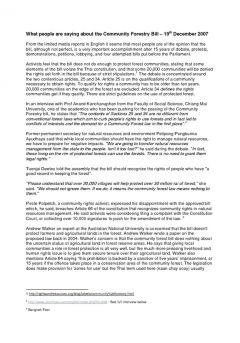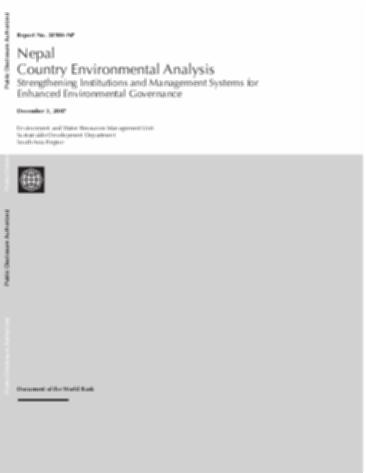Agricultural change in Lao PDR: Pragmatism in the face of adversity January, 2007
Rural development in the uplands of Lao Peoples’ Democratic Republic (Lao PDR) has presented many challenges for farmers and their communities. Lao government policy is directed at reducing the production of upland rice and providing sustainable alternative livelihoods for upland farmers.
The effects of habitat structure on red deer (Cervus elaphus) body mass
In most mammalian species, body mass is one of the key factors affecting an individual's fitness. It is therefore important to know the causes of its variability. The present paper analyses the influences of habitat structure and other environmental factors on body mass in red deer. The research is based on data sets concerning 3,920 culled red deer from the entire Slovenia, which are geo-referenced within a kilometer spatial accuracy, and on 28 spatially explicit raster layers of population density, habitat structure variables (e.g.
Beyond the second generation: towards adaptiveness in participatory forest management.CAB Reviews
The concepts of adaptive management and participatory forest management (PFM) reflect an increasingly holistic relationship between society and its forests. Adaptiveness depends on learning processes. This review considers the ways in which PFM has been assessed in recent literature and focuses on the role of learning, through cross-cutting quantitative analyses, project monitoring and evaluation, and participatory research and experimentation.
What People are Saying About the Community Forestry Bill
This brief identifies the problems with the Thai Community Forestry Bill (granted in 2007) that had initially aimed to help forest communities preserve and manage their surrounding forest land and to transfer the rights of management from the central government to local communities.
Mekong Region Customary Tenure Workshop
The Mekong Region Land Governance (MRLG) project and the Forestry Department of the Ministry of Natural Resources and Environmental Conservation (MONREC) co-hosted the “Mekong Region Customary Tenure Workshop” on 7-9 March 2017 in Nay Pyi Taw, Myanmar. This report outlines the main findings of the workshop, illustrated by some statements and case studies as presented by participants.
Nepal - Country Environmental Analysis : Strengthening Institutions and Management Systems for Enhanced Environmental Governance
The main objective of the Country Environmental Analysis (CEA) in Nepal is to identify opportunities for enhancing the overall performance of select environmental management systems through improvements in the effectiveness of institutions, policies, and processes.
Coastal protection in the aftermath of the Indian Ocean tsunami: What role for forests and trees?
Following the widespread wreckage and loss of life caused by the Indian Ocean tsunami of 26 December 2004, unprecedented efforts where made to restore order and rebuild the lives and livelihoods of the millions affected. A proportion of the reconstruction and rehabilitation effort was focused on environmental rehabilitation and a part of this again on the rehabilitation of coastal trees and forests. Many programmes were implemented during the post-tsunami period to restore coastal trees and forests, and in particular mangrove forests.
Передовые методы обеспечения более полного соблюдения законодательства в лесном секторе
Les mangroves d’Océanie 1980-2005: Rapports nationaux
The world’s mangroves 1980–2005 is a thematic study undertaken within the framework of the Global Forest Resources Assessment 2005. It was led by FAO in collaboration with mangrove specialists throughout the world, and was co-funded by the International Tropical Timber Organization (ITTO). It builds on the 1980 assessment, on the FAO Global Forest Resources Assessment 2000 (FRA 2000) and 2005 (FRA 2005), and on an extensive literature search and correspondence with mangrove and forest resources assessment specialists.
Access to Seeds and Plant Genetic Resources for Food and Agriculture
Laos depends heavily on rice based agriculture systems and there is evidence that the traditional diversified diet and income base is being eroded, resulting in a negative effect on the livelihoods of the people. The opportunity to gather food in forests is diminishing and dietary diversity is being narrowed.





